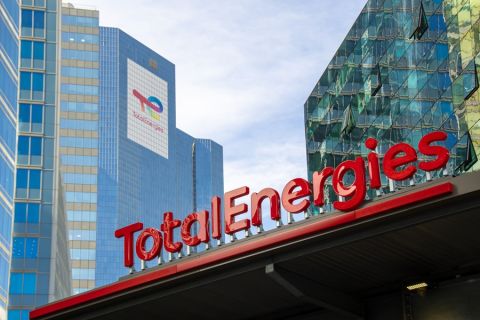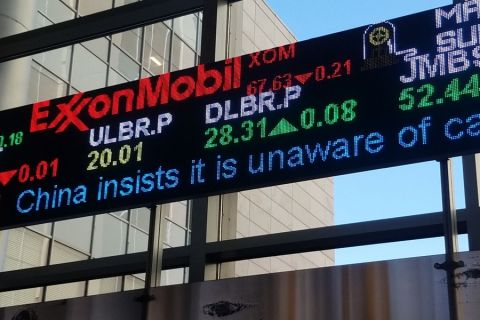Prime Minister Rishi Sunak watered down Britain's plans to tackle climate change on Sept. 20, saying he would delay a ban on sales of new petrol cars to maintain the consent of the British people in the switch to net zero.
Sunak said he remained committed to the legally-binding target of reaching net zero emissions by 2050 but said Britain could afford to make slower progress in getting there because it was "so far ahead of every other country in the world."
To ease what he described as "unacceptable costs" on British households from the energy transition, he delayed a ban on new petrol and diesel cars until 2035 from 2030, said he would ease the transition to heat pumps from gas boilers in homes and said he would not force any household to improve their insulation.
Sunak said he was changing the policy because previous governments had moved too quickly to set net zero targets without securing the support of the public.
"If we continue down this path, we risk losing the British people and the resulting backlash would not just be against specific policies, but against the wider mission itself," he told a press conference.
Businesses and environmental campaigners have said the historic decarbonization of the economy marks an opportunity to spur investment and economic growth and create well-paid jobs, including in former industrial towns.
For that to succeed, they say the government needs to provide a stable and predictable environment to encourage companies and consumers to make the shift, and the UK had long described itself as a leader in the move to a green economy.
But with a national election expected next year, Sunak appears to be betting that scaling back some green policies will win over voters who are struggling with stubbornly high inflation and stagnant economic growth.
In recent weeks, the government has also unnerved investors by delaying, again, post-Brexit border checks, cast doubt on the future of the country's yet-to-be-built high-speed rail line and failed to draw any bids at an offshore wind auction.
Angry response
News that it would delay several climate targets drew scorn from businesses producing everything from cars to solar panels, electric vehicle charging points and power.
Lisa Brankin, the chair of Ford UK, was scathing on the change to the 2030 EV car target: "Our business needs three things from the UK government: ambition, commitment and consistency. A relaxation of 2030 would undermine all three."
The opposition Labour Party, well ahead in opinion polls, said it would stick with the original 2030 target.
The Institutional Investors Group on Climate Change said the move would deter investment and urged Britain to be more like the EU and U.S. in setting out supportive and stable policies.
Chris Norbury, head of the U.K. arm of energy firm E.ON, Britain's third largest domestic energy supplier, said pitting the debate as "green vs cheap" was a false argument when delaying the move would cost more in the long run.
Falling emissions
Britain was the first major economy to create a legally binding 2050 net zero target, and emissions have fallen almost 50% since 1990 as coal power plants closed and offshore wind power took off.
Sunak says that puts Britain ahead of other major economies.
But the government's own independent climate adviser said in June that Britain was not doing enough to hit its targets, and it said on Sept. 20 the announcement was likely to take Britain further away from being able to meet its legal commitments.
Sunak, when asked how Britain could hit the 2050 target if it watered down earlier ones now, said there was room for manoeuver because the country had overdelivered in the past, industry costs were falling faster than expected and the public's uptake of climate measures had been better than predicted.
"We believe we are absolutely on track to deliver our commitments," he said.
Recommended Reading
TotalEnergies Eyes Suriname FID by Year-end 2024
2024-04-29 - France’s TotalEnergies and U.S. partner APA Corp. look to place their long lead orders ahead of a final investment decision related to their joint development offshore Suriname in Block 58.
Diamondback Stockholders All in for $26B Endeavor Deal
2024-04-29 - Diamondback Energy shareholders have approved the $26 billion merger with Endeavor Energy Resources.
ProPetro to Provide eFrac Services to Exxon’s Permian Operations
2024-04-29 - ProPetro has entered a three-year agreement to provide electric hydraulic fracturing services for Exxon Mobil’s operations in the Permian Basin.
Keeping it Simple: Antero Stays on Profitable Course in 1Q
2024-04-26 - Bucking trend, Antero Resources posted a slight increase in natural gas production as other companies curtailed production.
Oil and Gas Chain Reaction: E&P M&A Begets OFS Consolidation
2024-04-26 - Record-breaking E&P consolidation is rippling into oilfield services, with much more M&A on the way.





